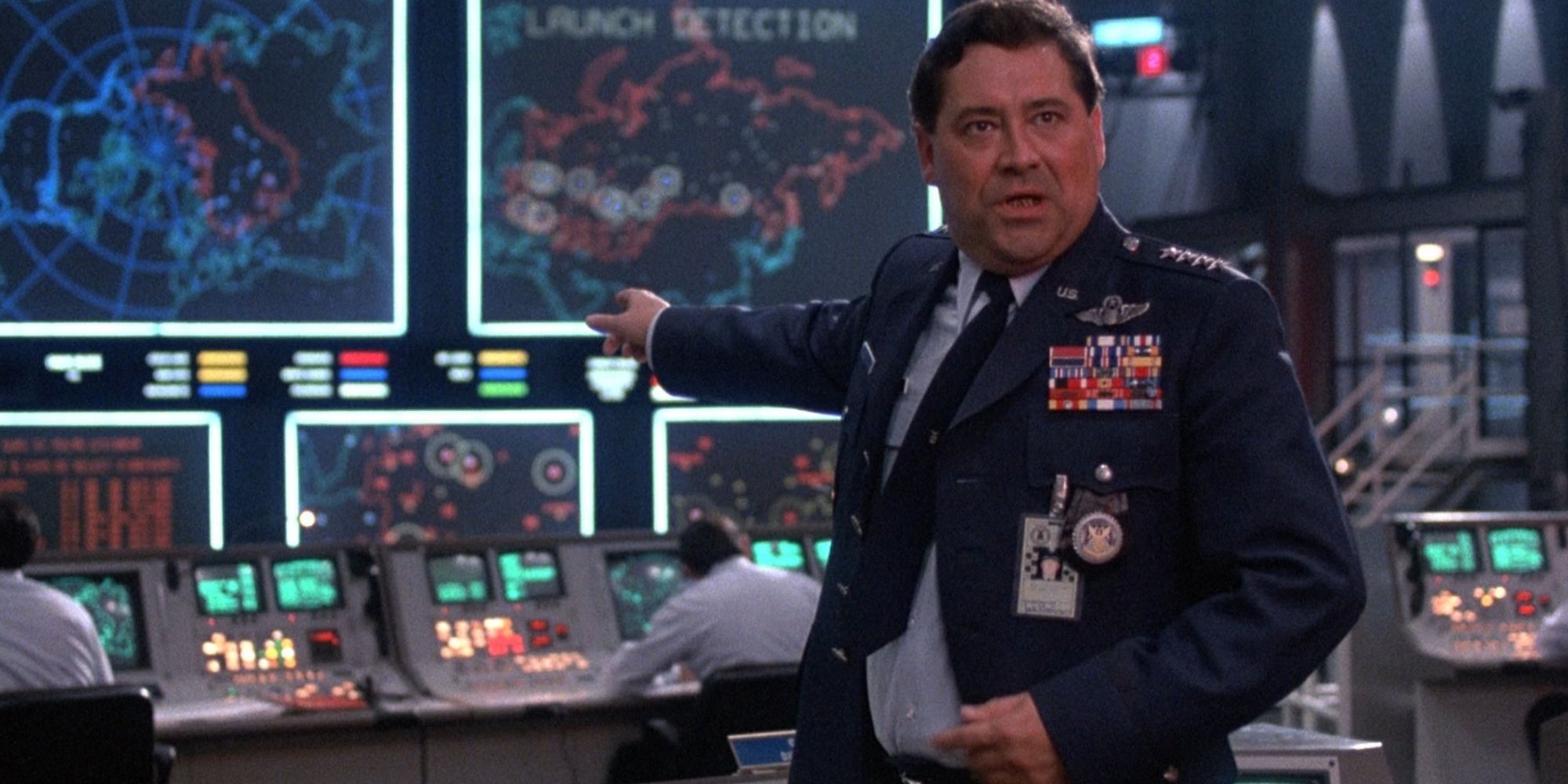Since its release on June 3, 1983, John Badham‘s WarGames has cemented itself as a seminal pop culture relic. Emblematic of a specific time and place regarding computer technology, gaming, and Cold War paranoia, the techno-thriller isn’t merely limited to decades of nostalgic appreciation by moviegoers. In an uncommon but fascinating example of a film having a real-world effect on governmental operations, WarGames‘ legacy extends to its influence on national security policy relating to cyberspace. Shortly after hitting theaters, it cultivated a reputation that transcended mere popcorn entertainment sensibilities, and as a result, influential people and agencies began serious discussions over the plausibility of the film’s doomsday scenario.
What Is ‘WarGames’ About?
From an original, Oscar-nominated screenplay by Lawrence Lasker and Walter F. Parkes, WarGames follows David Lightman (Matthew Broderick), a clever but lazy high school student with a knack for computers. Hoping to access games on his PC, he inadvertently gains access to NORAD’s latest supercomputer, WOPR (War Operation Plan Response), an advanced A.I. designed to simulate and learn from various war game scenarios. Thinking he’s merely playing a game, David’s actions trigger a real-world nuclear alert, with his formidable A.I. opponent, dubbed Joshua, unable to distinguish between fantasy and reality. Suddenly in the cross-hairs of powerful government forces, David goes on the run in a race against time as Joshua becomes increasingly hellbent on winning the “game,” threatening to start World War Three and realize the greatest fears of the Cold War.
Intelligent, tightly wound, and ahead of its time with themes surrounding the struggle to control emerging A.I. technology, and how to effectively respond to national security threats, WarGames was a hit with audiences and critics. Regardless of its impressive box office take and recognition by the Academy, however, it’s safe to assume that when writers Lasker and Parkes penned their screenplay, they had little to no inkling of just how consequential their hypothetical work of fiction would ultimately be. The very weekend that WarGames hit theaters, President Ronald Reagan secured a screening and was particularly captivated by the film’s dramatization of just barely avoiding global nuclear conflict. A few days later, he held a meeting with a handful of congressional representatives and administrative personnel, and all he could talk about was the film he’d just seen.
‘WarGames’ Exposed the Vulnerabilities of Cybersecurity
WarGames arrived at a timely moment in relations between the United States and the Soviet Union. With the Cold War still simmering and the threat of a nuclear exchange always looming, a new frontier of national offense and defense was emerging through cyber technology. Decades prior, the United States Defense Department set up a network of computers allowing Pentagon officials to coordinate and share information with one another. Sounding the alarm as early as 1967, computer scientist Willis Ware (WarGames screenwriters Larry Lasker and Walter F. Parkes spoke to him for research) expressed concerns about such a network’s security vulnerabilities, warning of the potential for foreign or domestic foes breaching devices and accessing sensitive information. But despite his reputation and prominence in technological circles, Ware’s concerns were largely unaddressed for years.
When President Reagan met with legislators and advisors after seeing WarGames, Willis Ware’s long-held fears finally came to the fore. Reagan asked one of his advisors, “Could something like this really happen?” Considering that just a few months prior, when the President announced plans for the largely derided “Star Wars program” — a far-fetched and ridiculously expensive defense initiative aimed at developing technology capable of intercepting nuclear weapons — his new concerns stemming from a techno-thriller film had some members of his inner circle react with skepticism. But the scenario that couldn’t be ignored was simple: if a crafty high school student could hack into a government network and nearly spark World War Three, then what could highly-motivated adversarial forces be capable of?
‘WarGames’ Influenced National Security Policy
After Reagan inquired about the vulnerabilities of cybersecurity, the response he received was anything but reassuring. After some investigation, General John W. Vessey of the Joint Chiefs of Staff ominously informed the President, “The problem is much worse than you think.” The other distressing realization was that several tech and government insiders had been trying, with little to no effect, to raise awareness of the issue for some time. Not taking the situation lightly, Reagan initiated work on a national security directive designed to seal up the cracks in cyber tech’s proverbial armor.
Fifteen months after WarGames was released, NSDD-145, also known as the National Policy on Telecommunications and Automated Information Systems Security (say that three times fast), was signed into law. Sweeping and generalized in its goals, but arguably well-intentioned in protecting sensitive devices and information, the directive ignited debate over to what extent such protections could potentially encroach on civil liberties. While generally commending the directive, the Government Accountability Office released a statement highlighting this very concern, stating, “The directive fails to address the area of sensitive information without a national security impact.” With hindsight clear as day, it’s likely no one could’ve predicted just how fraught this debate would become decades later with controversial laws like the Patriot Act, and of course Edward Snowden‘s bombshell revelations regarding the NSA’s blatant abuse of surveillance capabilities.
The Concerns Raised By ‘WarGames’ Are as Timely as Ever
Fast-forward four decades after NSDD-145 was enacted. Discussions focused on maintaining national security at the expense of personal privacy, and the risks inherent to evolving A.I. technology, have never been more relevant. At a crucial moment when some of the most knowledgeable voices in their respective fields are waving red flags, John Badham’s 1983 thriller is even more pertinent, eerily exploring our fears of unleashing technological beasts and the tendency to subsequently overreact when correcting course. WarGames has certainly retained its power as a prophetic and cautionary tale, reminding us all that in the face of mutually assured destruction, we’d do well to remember Joshua’s ultimate revelation: the only winning move is not to play.



